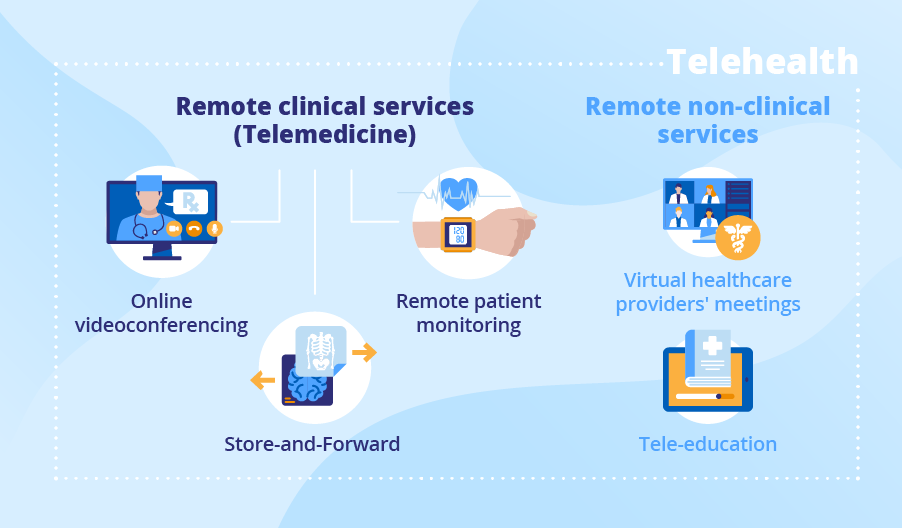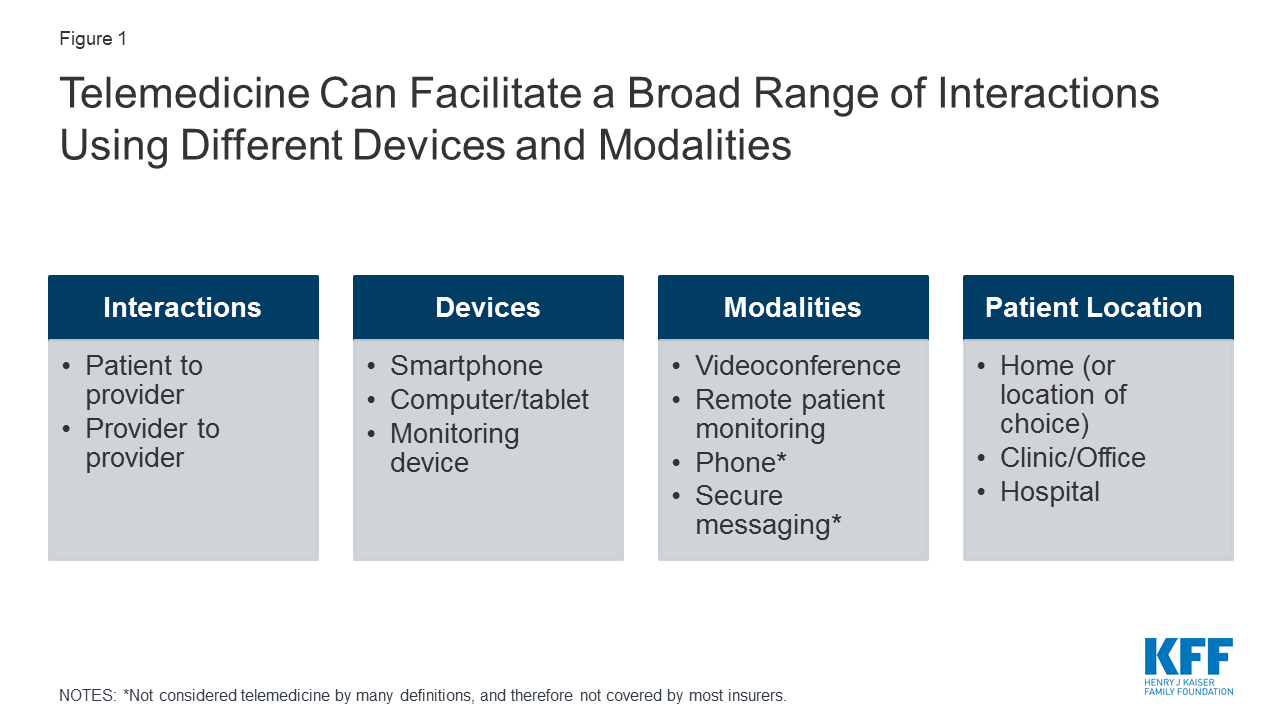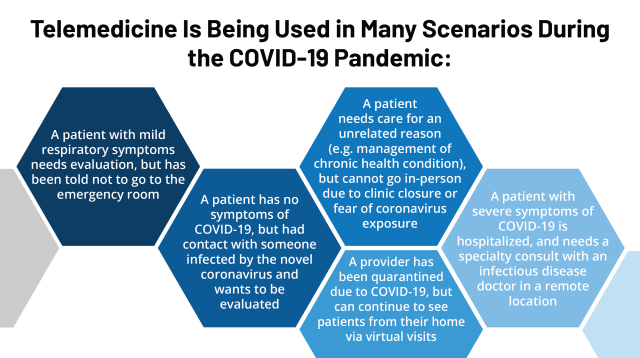How Does Telemedicine Differ From The Traditional Medicine
However the term telehealth is now more commonly used as it describes the wide range. Healthcare providers however must consider legal and ethical issues when planning designing and implementing telemedicine.

Pdf Telehealth And Telemedicine How The Digital Era Is Changing Standard Health Care
Some may even prefer telemedicine psychiatry to traditional therapy.

How does telemedicine differ from the traditional medicine. To address major health issues related to affordability access and quality of care healthcare providers need to consider telemedicine as a reliable option when access to traditional medicine is difficult and out of reach. How does telemedicine differ from the traditional medicine. Patients were significantly more likely to keep telepsychiatry appointments meeting 92 of their appointments as compared to 87 of traditional appointments.
Telemedicine can be extremely beneficial for people living in isolated regions and is currently being applied in virtually all medical domains. Patient satisfaction and convenience. How does telemedicine differ from traditional medicine.
How does telemedicine differ from the traditional medicine. Telemedicine can be extremely beneficial for people living in isolated regions and is currently being applied in virtually all medical domains. Patients who are seen by a Mayo Clinic.
September 5 2016 Assignment Answers. Elemedicine can be extremely beneficial for people living in isolated regions and is currently being applied in virtually all medical domains. What technologies or infrastructure are necessary for the successful practice of telemedicine.
Telemedicine is differed from treating patients face to face because the patient does not get to see their care provider physically. To address major health issues related to affordability access and quality of care healthcare providers need to consider telemedicine as a reliable option when access to traditional medicine is difficult and out of reach. Whereas others states continue to require telehealth providers to comply with their traditional practice of medicine laws.
Telemedicine shouldnt be seen as a replacement to traditional medicine but rather an enhancement to the current tools that are in place. From its beginnings telemedicine has been used in a variety of health care fields although widespread interest among healthcare providers has only now become apparent with the development of more sophisticated technology. This study which is open to students at Arizona State University who require follow-up care after their visit to ASU Health Services.
Telemedicine is the use of telecommunications technology for medical diagnosis and patient care. To address major health issues related to affordability access and quality of care healthcare providers need to consider telemedicine as a reliable option when access to traditional medicine is difficult and out of reach. Patients want convenience and do not want to wait up to 90 minutes to see someone.
This study is to determine if telemedicine visits provide similar quality and patientphysician satisfaction as traditional office visits in a college health population. How does telemedicine differ from the traditional medicine. To address major health issues related to affordability access and quality of care healthcare providers.
Key among these issues are those of patient confidentiality privacy data security and transmission. You may be typing questions and responses to your doctor in a messaging platform talking to your doctor over the phone or. Low fees board-certified physicians and real-time care make Akos the leader in telemedicine.
Telehealth is different from telemedicine in that it refers to a broader scope of remote health care services than telemedicine. Telemedicine is put in place to enhance traditional care not to replace it. As telemedicine continues to grow Akos is there to put medical care back into the palm of your hand.
What are other legal or ethical issues involved in telemedicine. Telemedicine is the use of telecommunications technology for medical diagnosis and patient care. Telemedicine works differently depending on your symptoms your doctor and the platform used to communicate.
Telemedicine is often still used when referring to traditional clinical diagnosis and monitoring that is delivered by technology. Telemedicine refers specifically to remote. Telehealth is different from telemedicine because it refers to a broader scope of remote healthcare services than telemedicine.
Which of these issues in your opinion will be the most difficult to address. Telemedicine can be extremely beneficial for people living in isolated regions and is currently being applied in virtually all medical domains. For example some states have created new laws for telehealth such as special licensure e-prescribing laws which treat telehealth as something fundamentally different from the ordinary practice of medicine.
Telemedicine refers specifically to remote clinical services while telehealth can refer to remote non-clinical services CCHP.

Telemedicine And Telehealth Technology The Gist

Opportunities And Barriers For Telemedicine In The U S During The Covid 19 Emergency And Beyond Kff

Opportunities And Barriers For Telemedicine In The U S During The Covid 19 Emergency And Beyond Kff
